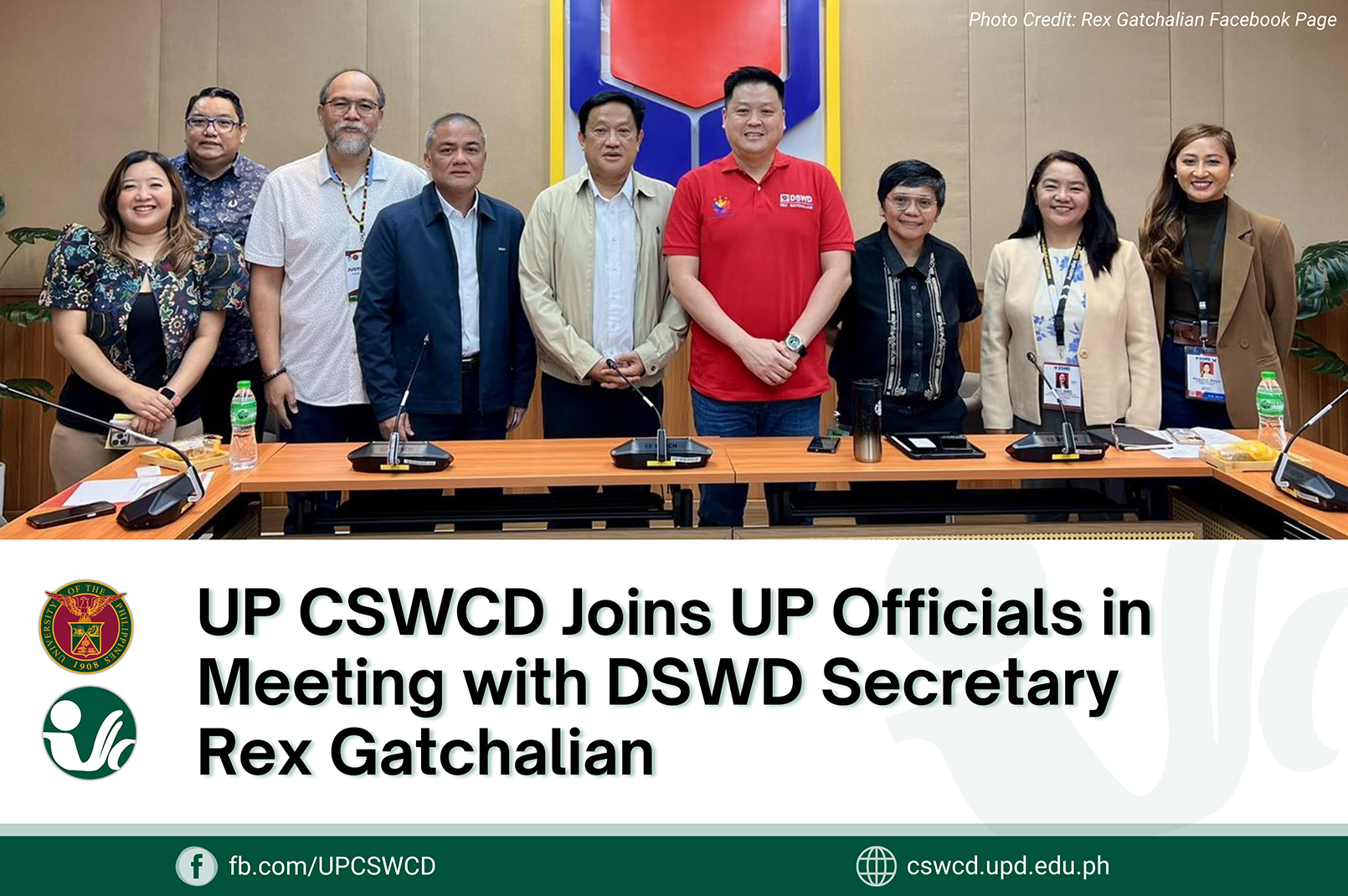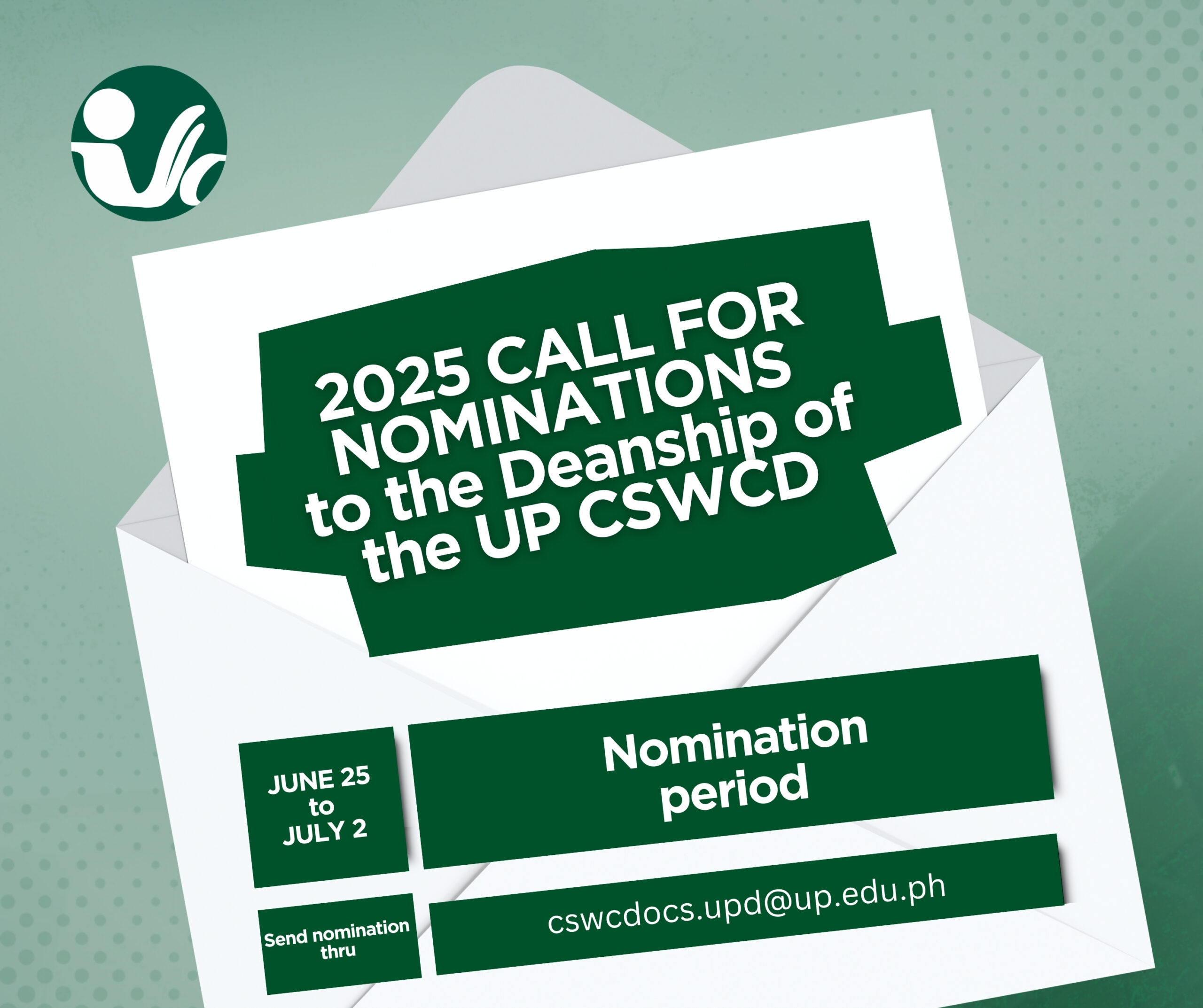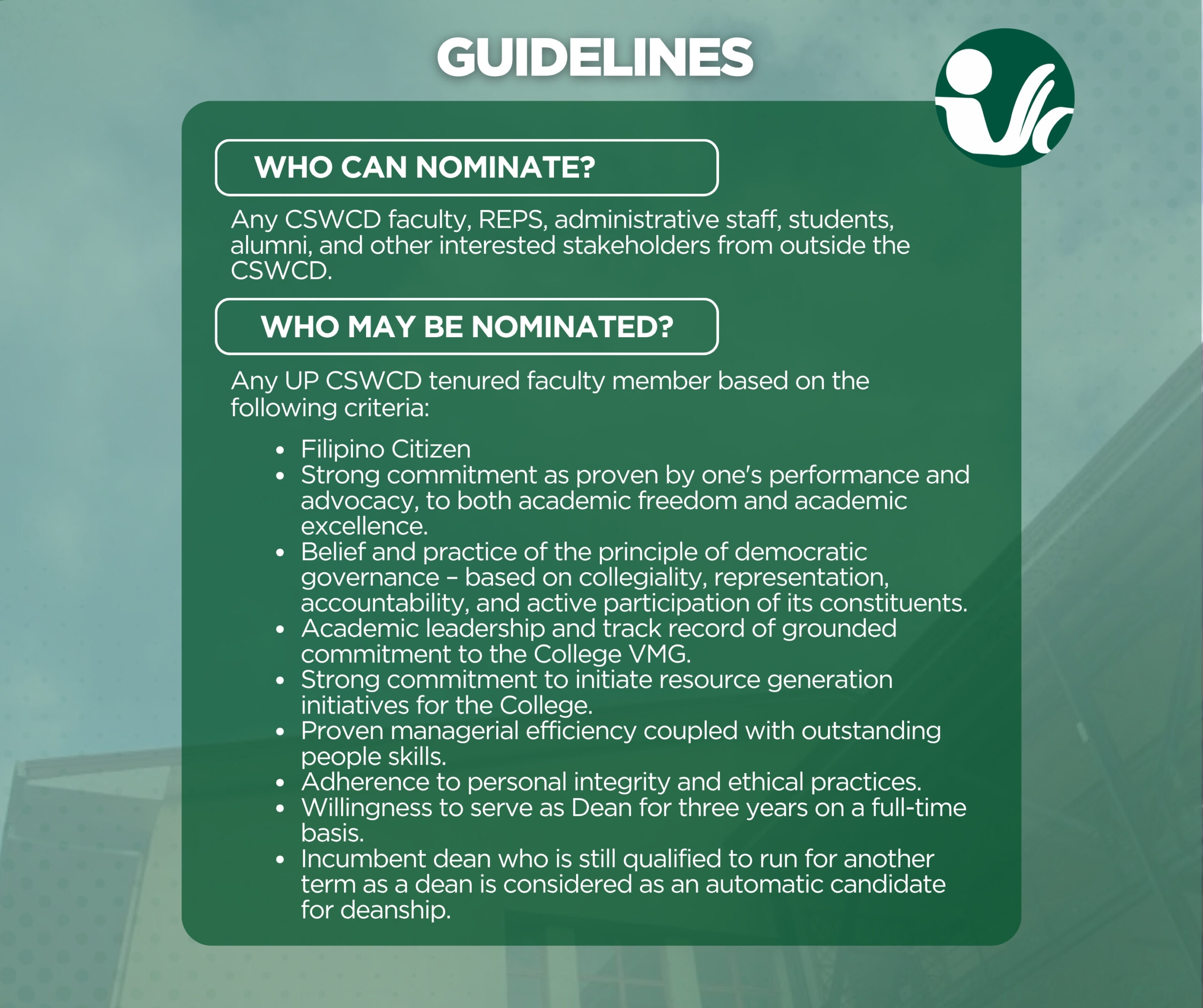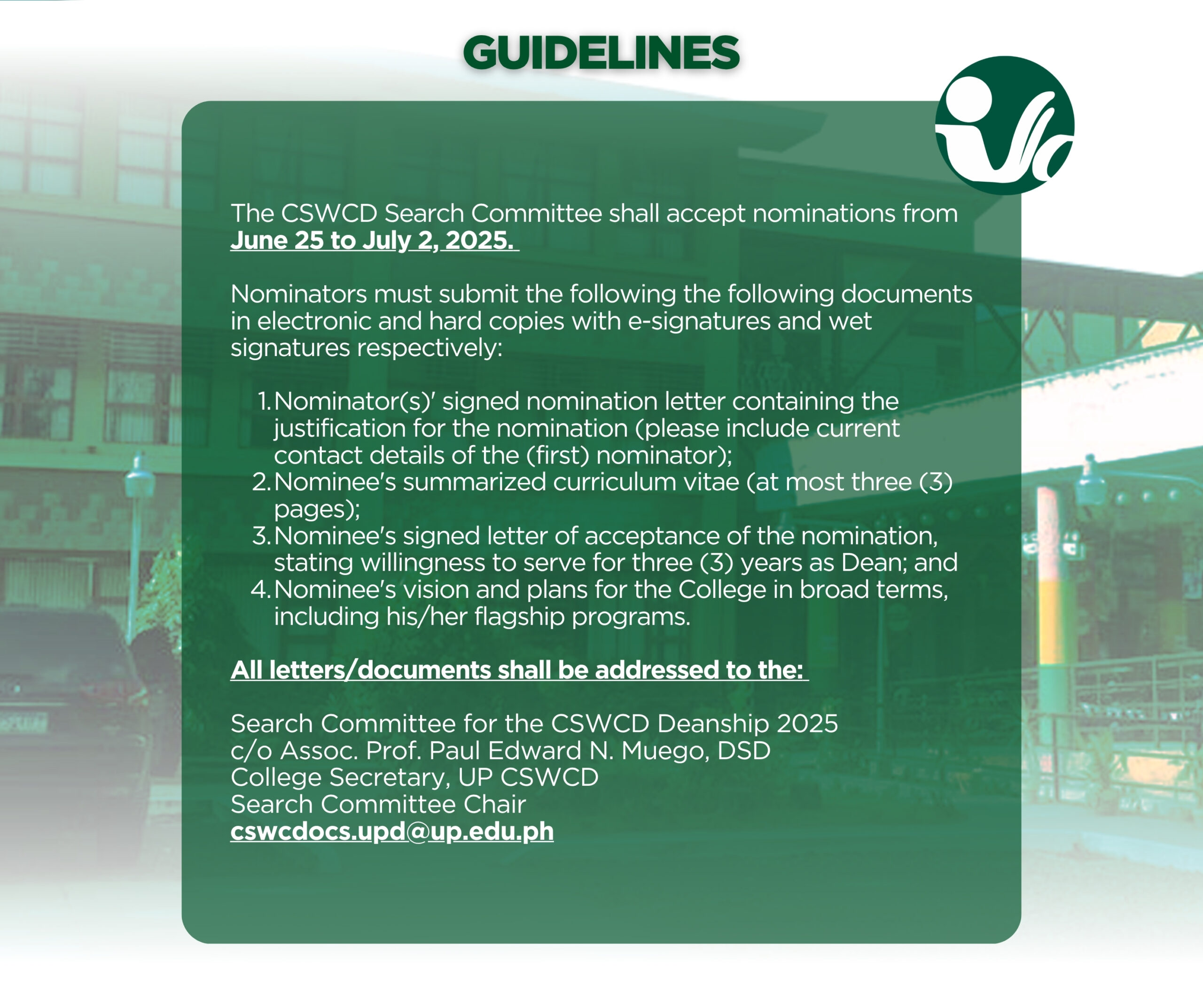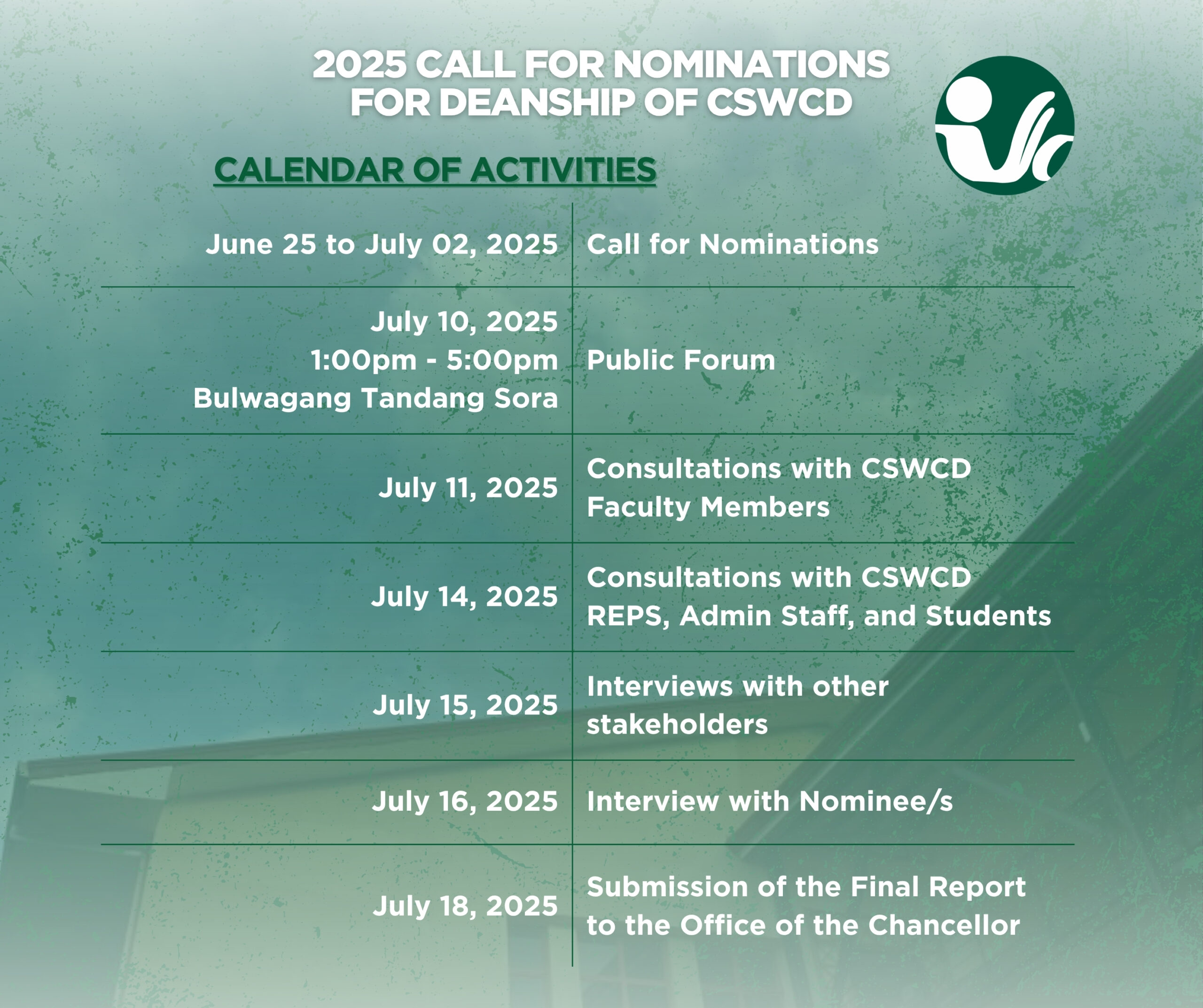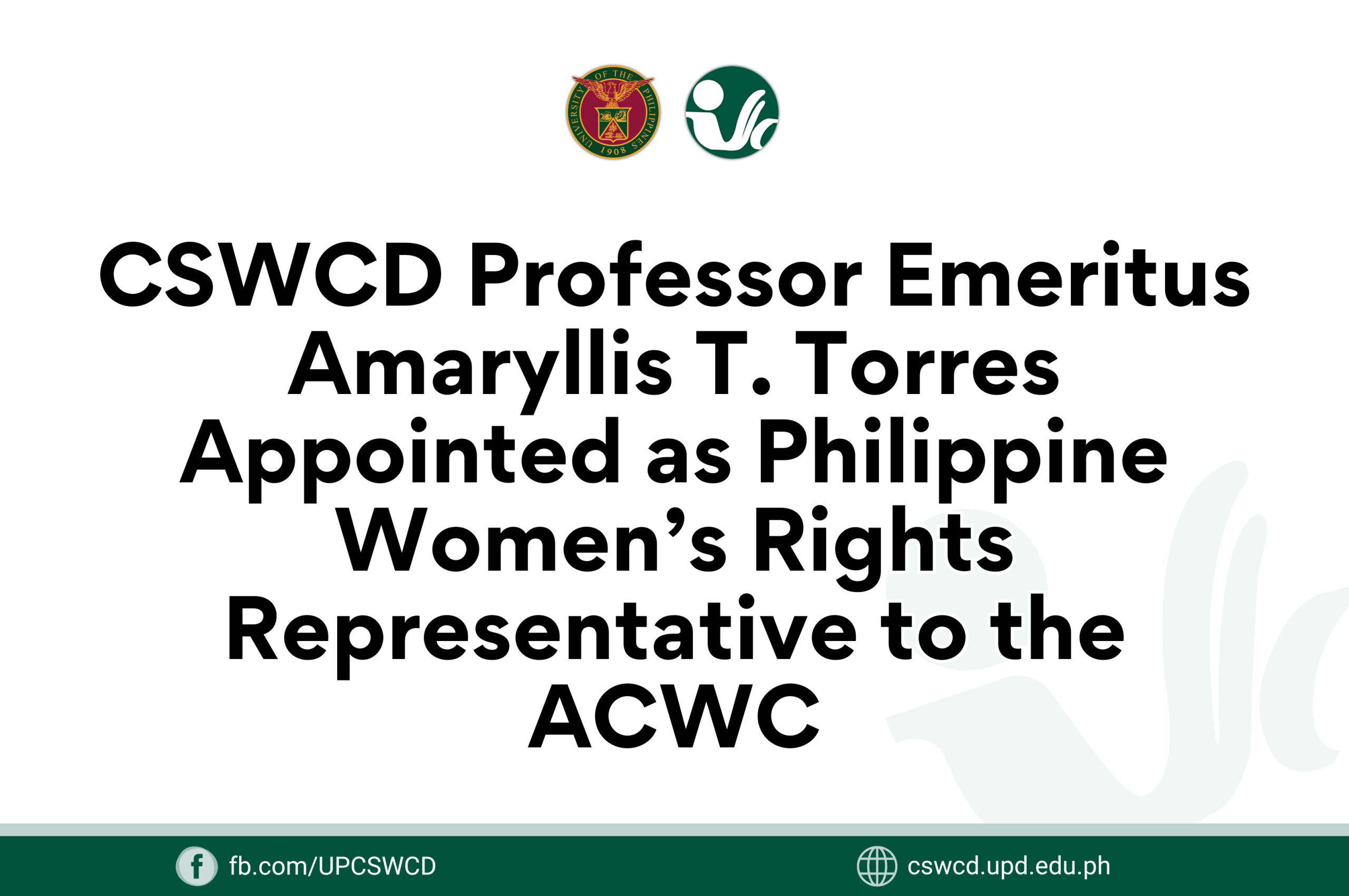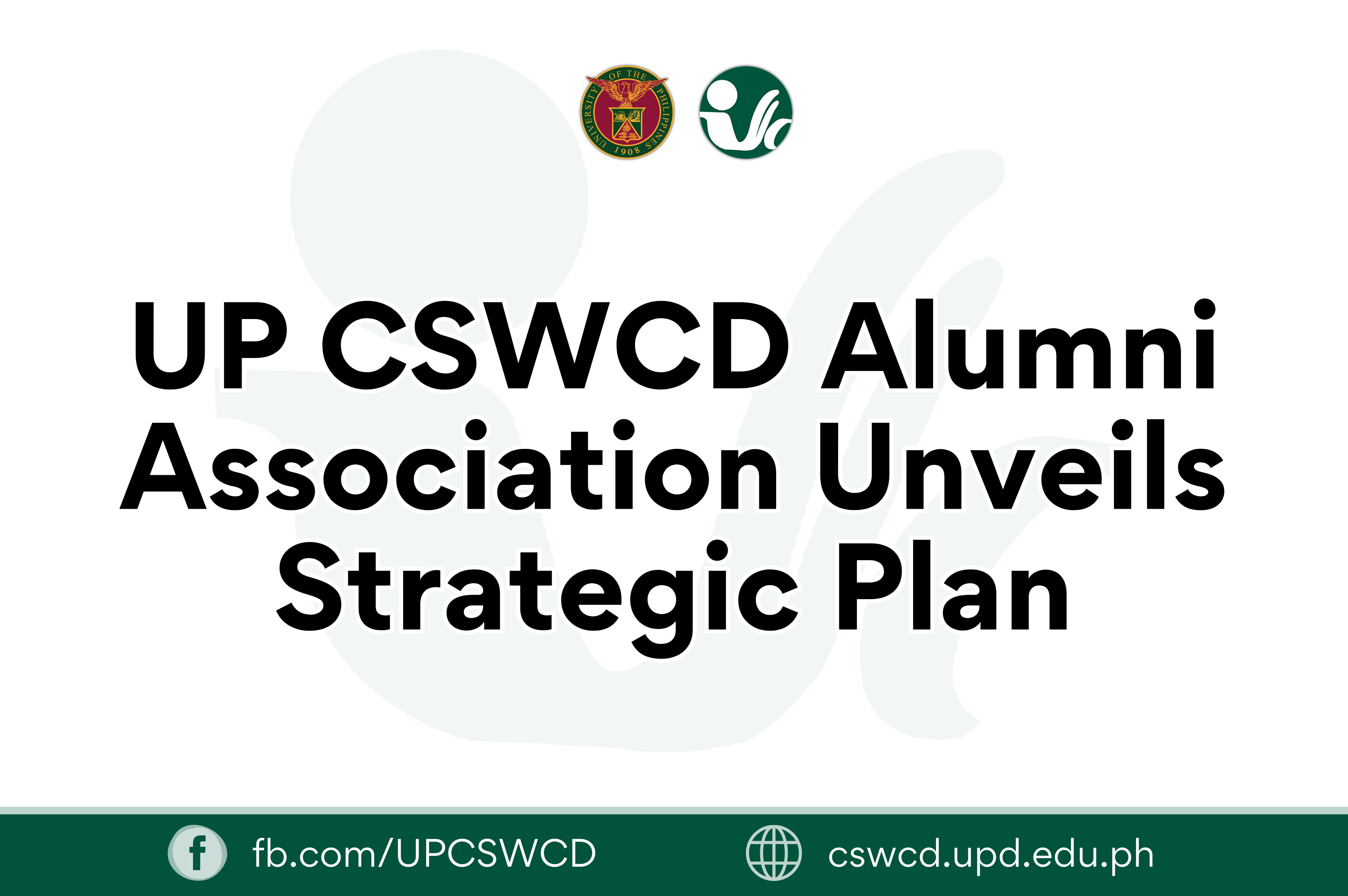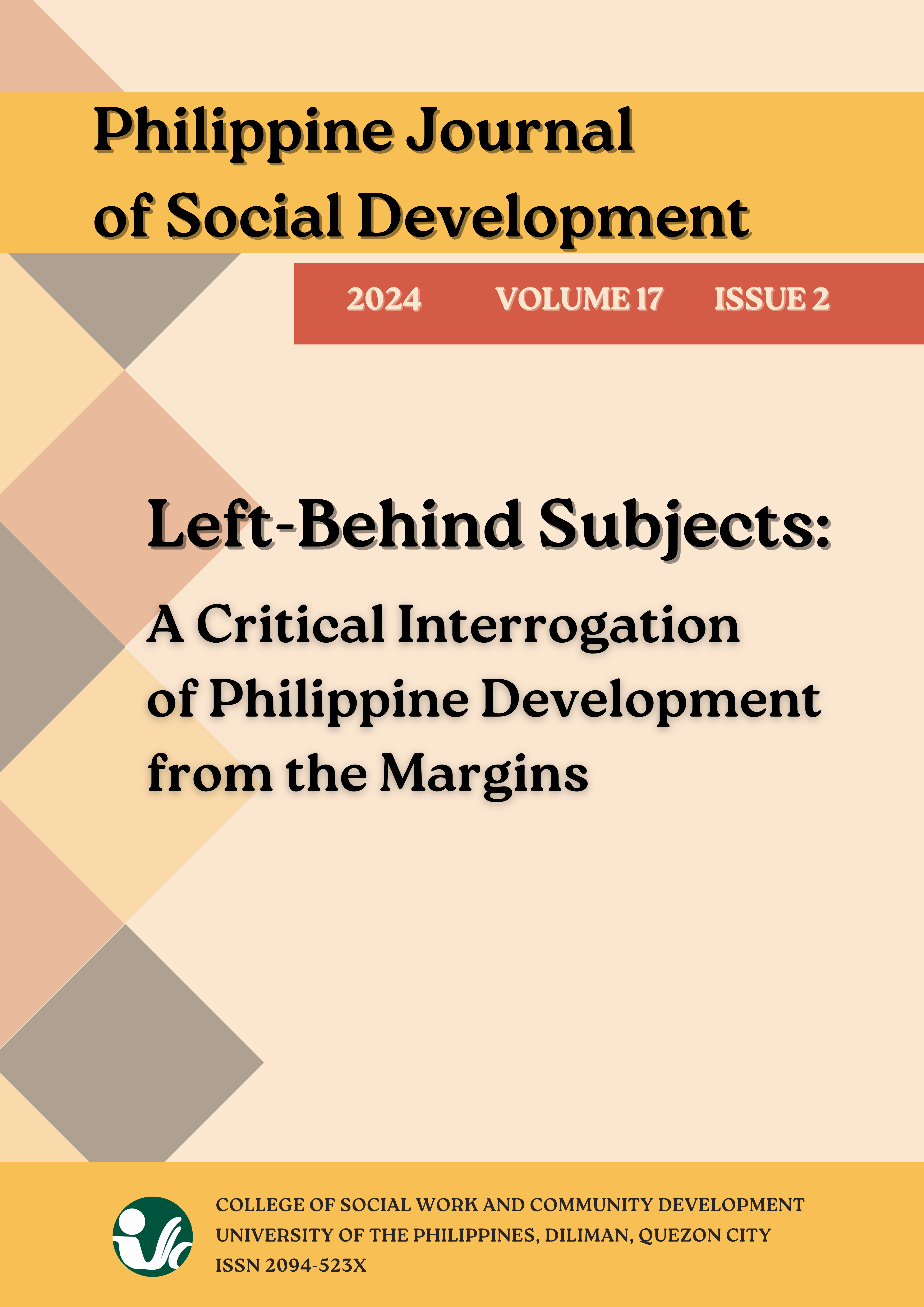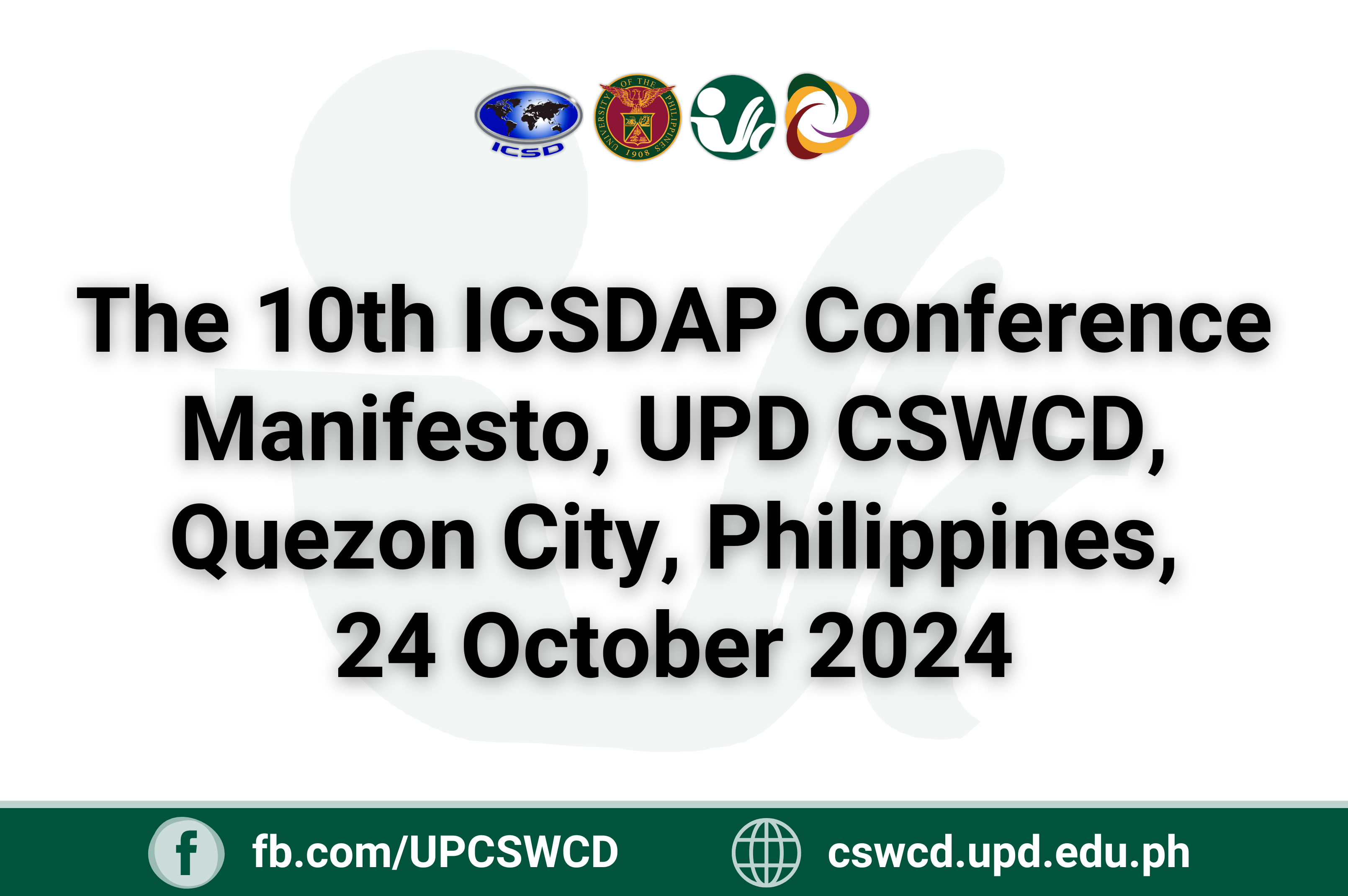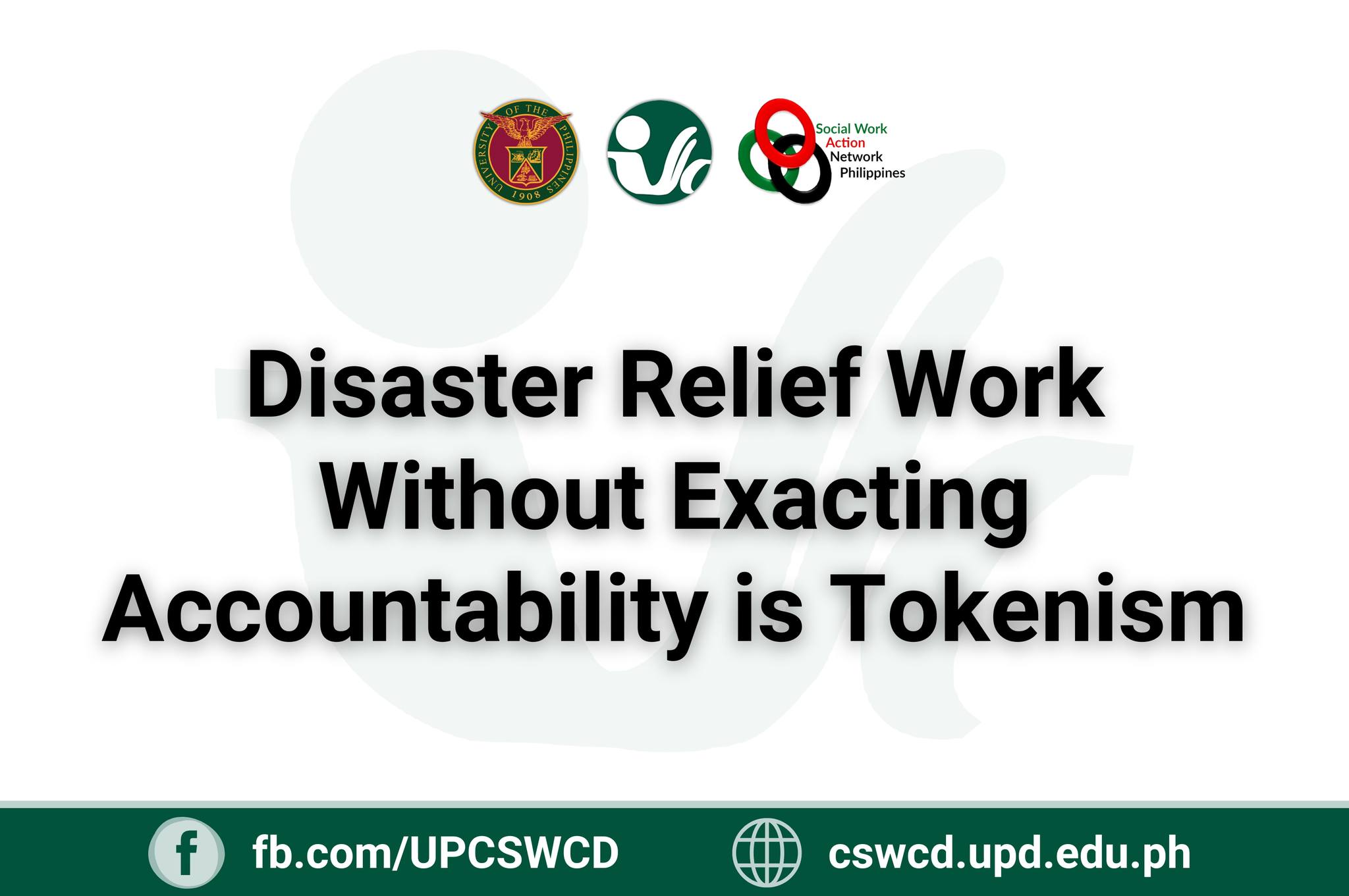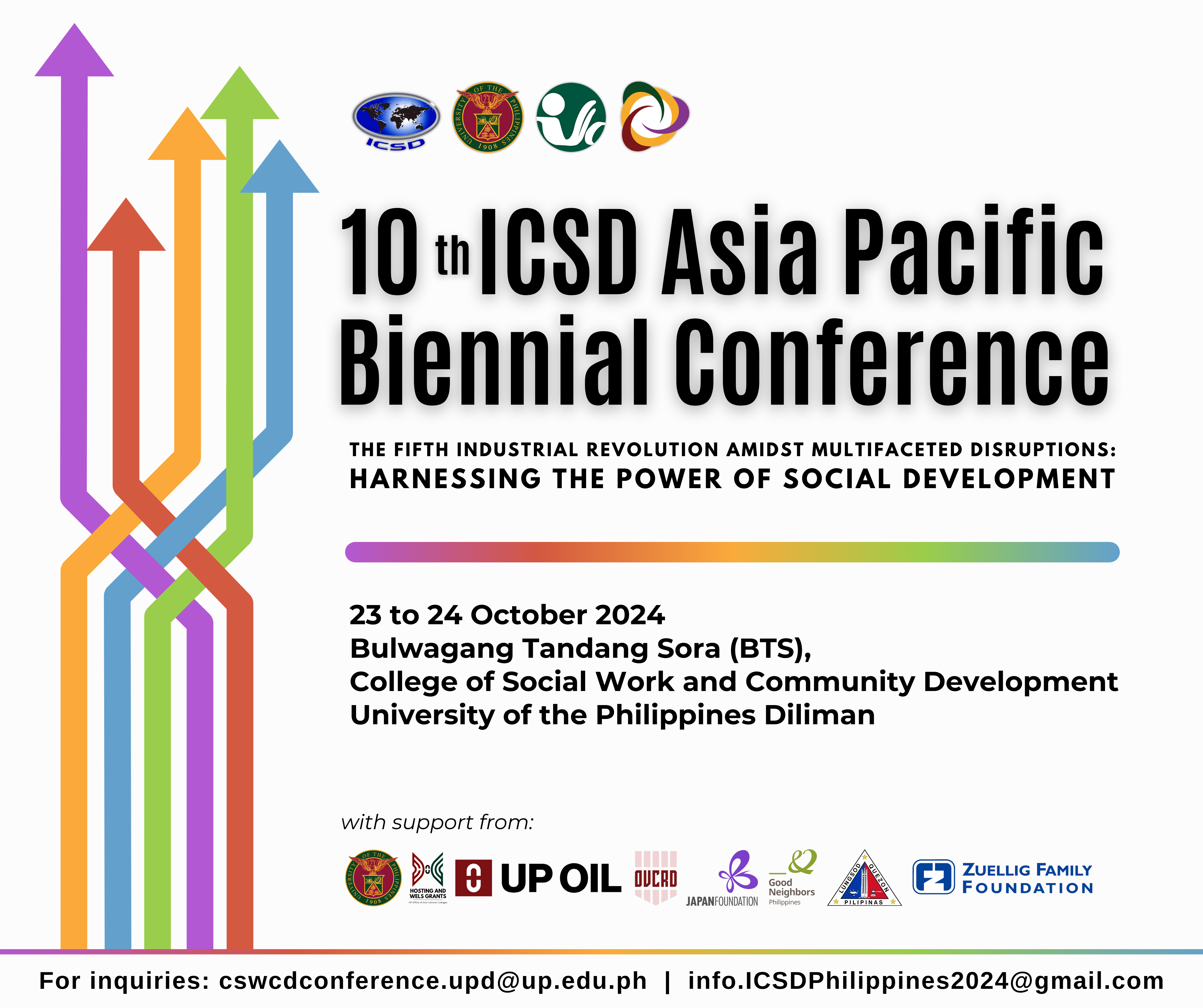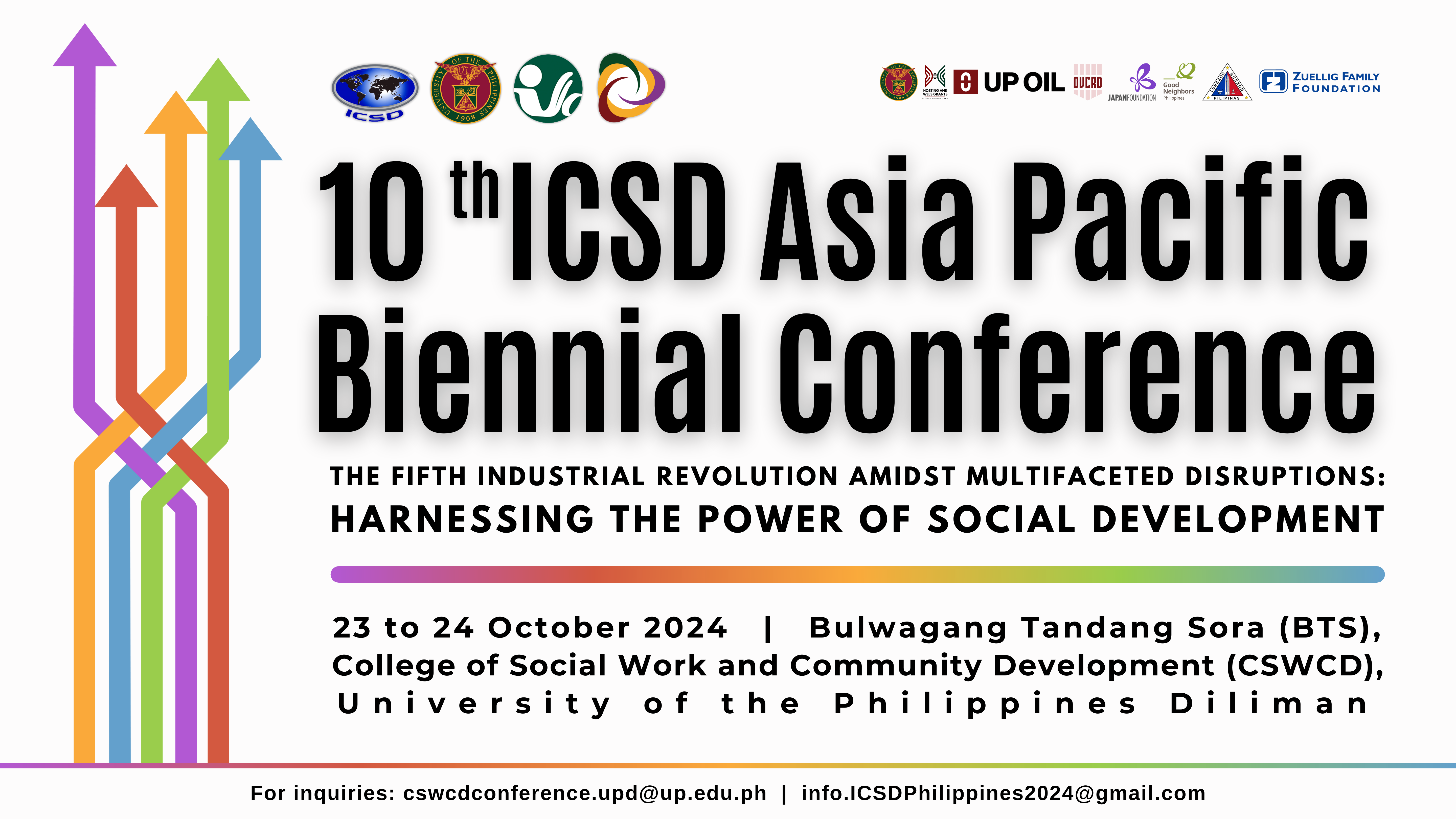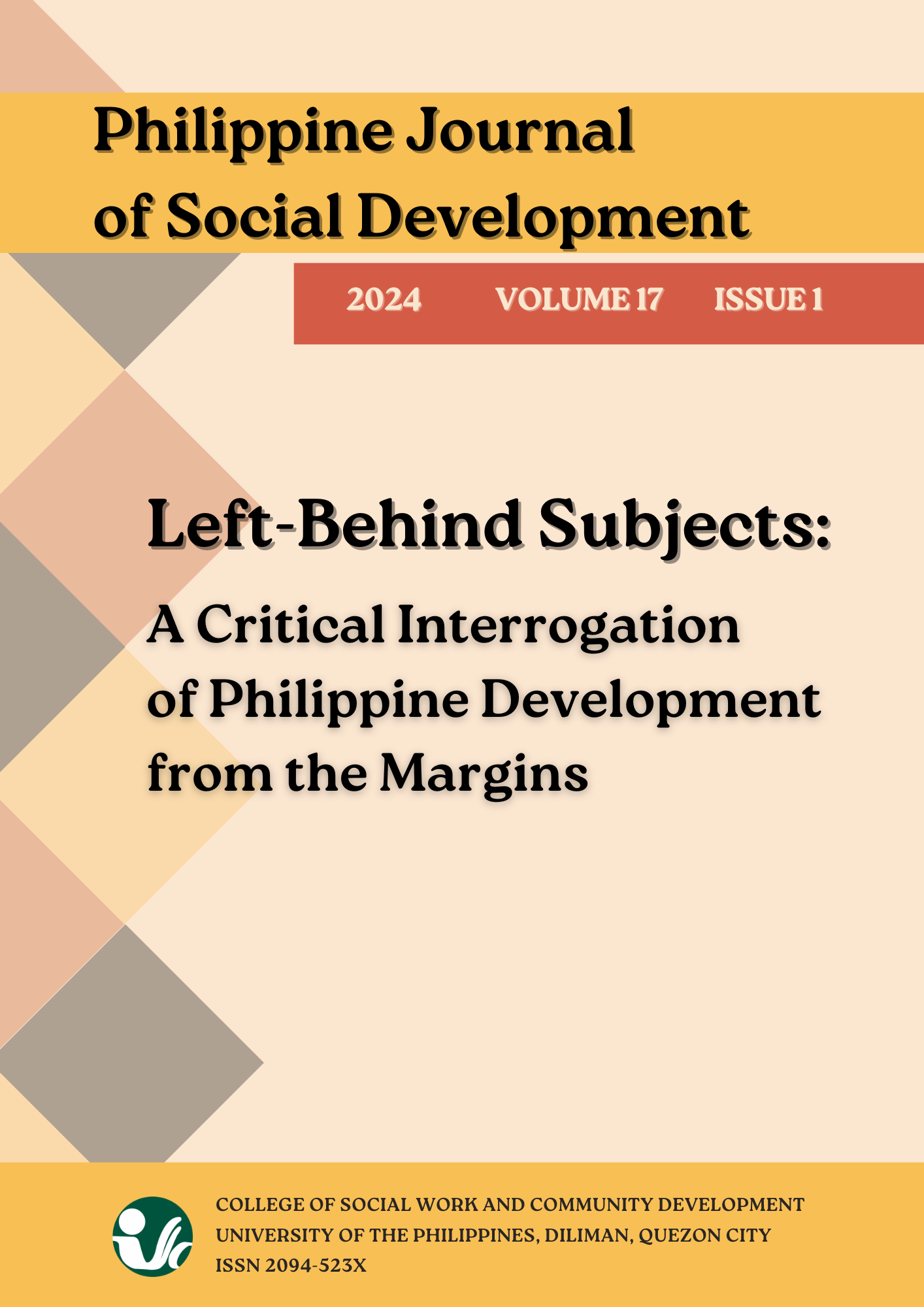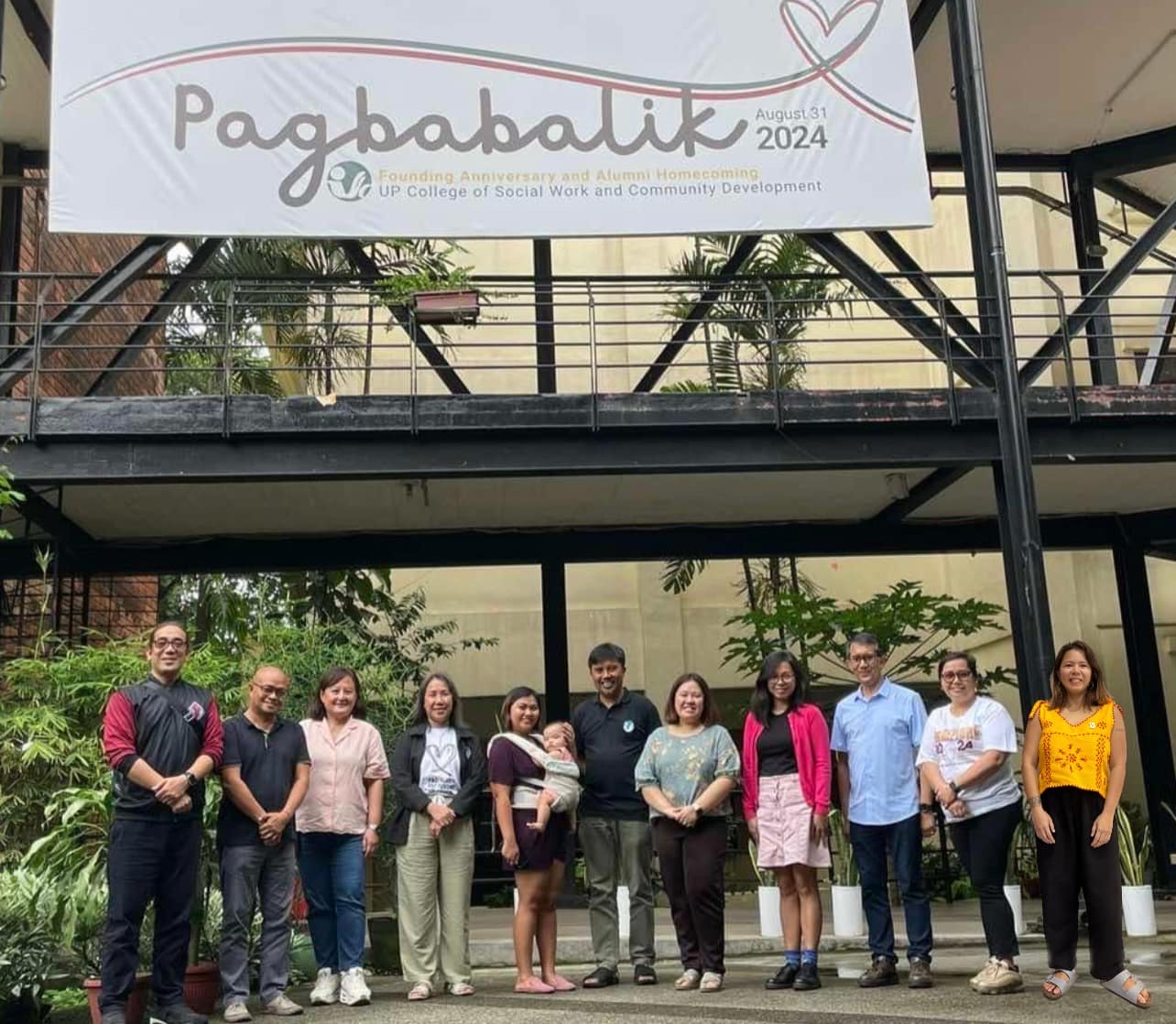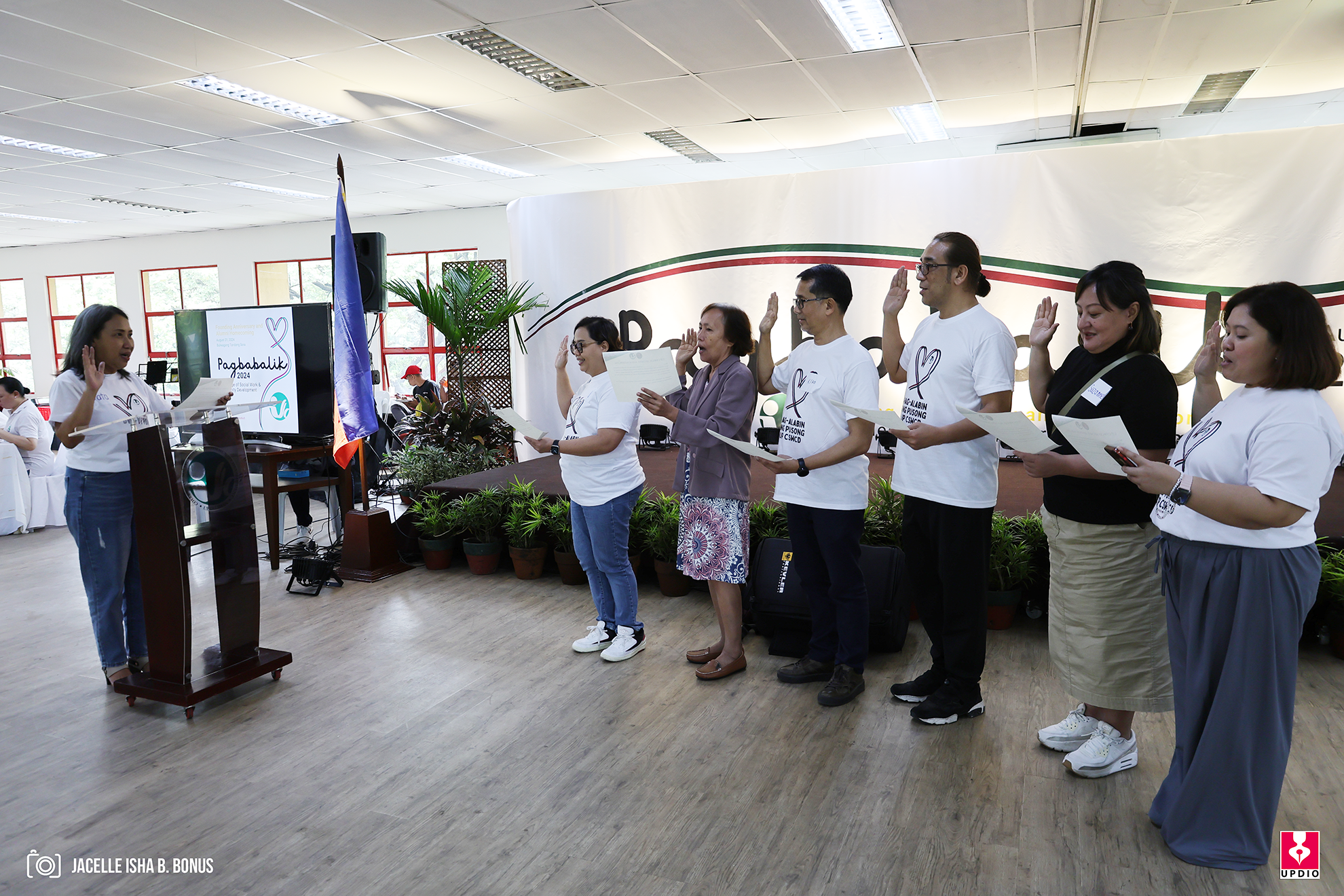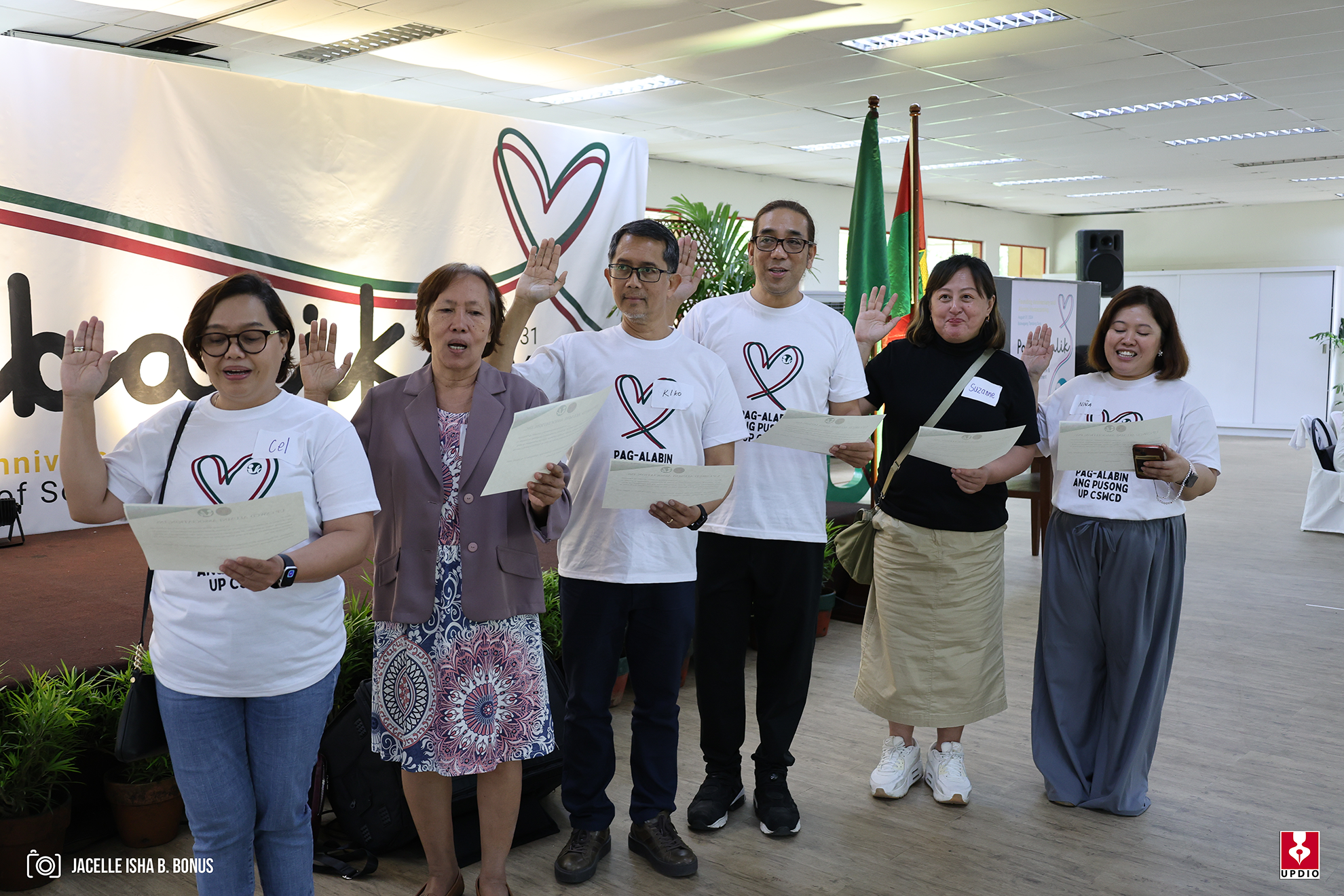We, the participants of the 10th International Consortium for Social Development Asia Pacific Conference on the theme “5th Industrial Revolution in the midst of multiple disruptions: harnessing the power of Social Development,” convened at the College of Social Work and Community Development, University of the Philippines Diliman, Quezon City on 23-24 October 2024, hereby declare that:
We acknowledge the multiple disruptions occurring in our societies and their impacts on social, economic, and environmental well-being, both locally and globally, and recognize the need to proactively and strategically address them.
We reaffirm the Declaration on the Right to Development, particularly its statement that “social development is a comprehensive social, economic, cultural, political and ecological process, which aims for the constant improvement of the well-being of the entire population and of all individuals and their environment on the basis of their active, free and meaningful participation in development and in the just distribution of benefits resulting therefrom.”
We are guided by the provisions of the Universal Declaration on Human Rights, which affirms every person’s inherent dignity and entitlement to a free and just world.
We acknowledge the importance of the various United Nations (UN) Conventions, particularly the International Covenant on Civil and Political Rights, the International Covenant on Economic, Social and Cultural Rights, the Convention on the Elimination of all Forms of Discrimination Against Women, the Convention on the Rights of the Child, the Convention on the Rights of All Migrant Workers and Members of their Families, the Convention on the Rights of Persons with Disabilities, the Declaration on the Rights of Indigenous Peoples, and all other conventions, declarations, and resolutions.
In the midst of the interconnected crises facing our societies, we observe:
Rising inequalities: The bottom 50% of the global population owns less than 1% of the total global wealth, while the top 10% captures 82% of it. Moreover, 692 million people lived below the US$ 2.15 per day poverty threshold as of mid 2024. Gender equality remains elusive for the vast majority of women worldwide, with one-third experiencing various forms of violence exacerbated by pandemics and conflicts.
Conflicts within and across borders: The Global Conflict Tracker identified conflict areas including seven (7) in the Americas, seven (7) in Asia, two (2) in Europe and Eurasia, 10 in the Middle East and North Africa, and five (5) in Sub-Saharan Africa.
State aggression: State aggression, in furtherance of the concentration of capital and patriarchy, results in loss of lives, involuntary migration, and further violation of human rights. It not only perpetuates systemic inequalities but also exacerbates socio-economic disparities.
Impacts of climate change: Extreme temperatures, characterized by droughts in some parts of the world and excessive rainfall in others, cause food insecurity, displacement, and suffering of the most vulnerable populations. Small island states and coastal areas with dense informal settlements are particularly prone to rising sea levels, storm surges, and severe flooding.
The occurrence of these phenomena all at once leads to crippling poverty, hunger, involuntary migration, and displacement of people in different parts of the globe, from Rohingyans fleeing persecution and disasters in Asia, Palestinians and Lebanese caught in the midst of conflicts in the Middle East, to Ukrainians escaping the war with Russia, and many more displaced people.
We are cognizant of the importance of achieving the UN Sustainable Development Goals and the Paris Agreement on Climate Change, but we also recognize the overwhelming challenges associated with their attainment.
We are disturbed by the utter disregard for humanitarian laws and international laws by authorities, corporations, and states.
We are deeply concerned by the impacts of climate change in the lives of poor, marginalized and displaced people. Our concern deepens when disasters strike people already caught in the midst of conflict.
We are alarmed by the persistent inequality in access to technologies and the unethical use of artificial intelligence in distorting facts and misleading people, resulting in their oppression and disempowerment.
We believe that genuine development cannot flourish amid new forms of colonialism, racism and racial discrimination, neoliberalism, foreign domination, aggression against national sovereignty, particularly concerning the rights of stateless people.
We call for a transformative approach to social development that addresses the root causes of these crises. We, therefore, urge fellow social development workers, educators, advocates, and community activists to call on all States to:
Uphold and implement the UN Declaration on the Right to Development, the Universal Declaration on Human Rights, and all other UN Conventions and Declarations;
Uphold the rule of law and stop impunity in all its forms;
Strengthen democratic governance and respect the rights of minorities and Indigenous Peoples;
Hold all aggressors accountable and ensure that conflict actors observe international humanitarian law and spare humanitarian organizations and civilians from direct aggression.
Furthermore, in the midst of the Fifth Industrial Revolution, with its unprecedented technological advances, and in a rapidly changing world where multiple crises affect the poor and vulnerable, social development practitioners should create strategic and innovative pathways towards the eradication of poverty, social exclusion, and inequality in all its forms. Hence, social development workers, educators, organizations, and grassroots communities should commit to:
Strengthen peoples’ critical understanding of the social, political, cultural, environmental, and economic structures, systems, beliefs, and practices, in pursuit of achieving sustainable social and environmental well-being;
Harness participatory processes to push for inclusive state policies and programs and the allocation of resources that address the root causes of interconnected crises, such as inequality, climate change, and various forms of social and environmental injustice;
Empower local communities through critical consciousness-raising, organizing, movement building, capacity development, and strengthening grassroots leadership and collective action to enhance their agency and power in the face of crises;
Strengthen networks of solidarity and care across the globe to work towards inclusive and transformational change in the context of a rapidly changing world;
Build strong alliances across sectors and nations to create coordinated responses to the global crises, prioritizing the needs of the most vulnerable communities;
Demand accountability from governments, institutions, and corporations to ensure ethical governance and transparency in crisis response and development efforts;
Leverage technology, innovation, and citizen and community engagement to create sustainable solutions, raise public awareness, and mobilize resources for long-term social development;
Broaden the ranks of social development advocates and practitioners, and popularize progressive social development values, principles, and theories in academic institutions, schools, training centers, and communities.
We enjoin all peace-loving people and development workers to call on the United Nations General Assembly and the Security Council to mediate in the current wars and aggressions that are anathema to development. We also join the call to reform the United Nations General Assembly to expand its representation beyond the powerful and developed states.
We urge that these critical issues be placed on the agenda of the UN Second World Summit on Social Development, to be held in Doha, Qatar, in November 2025, and that effective action plans be developed.
Adopted at the 10th ICSDAP Conference at the UP CSWCD, University of the Philippines Diliman, Quezon City, Philippines, this 24th day of October 2024.
References:
World Inequality Report 2022 : The World InequalityReport 2022 presents the most up-to-date & complete data on inequality worldwide:
Poverty and Inequality Platform: Homepage (worldbank.org)
The Global Conflict Tracker: Global Conflict Tracker l Council on Foreign Relations (cfr.org)
Intergovernmental Panel on Climate Change Report: AR6 Synthesis Report: Climate Change 2023 (ipcc.ch)
The World’s Women 2020: Trends and Statistics: The World’s Women 2020: Trends and Statistics | United Nations
Sustainable Development Report 2024: Sustainable Development Report 2024 (sdgindex.org)
